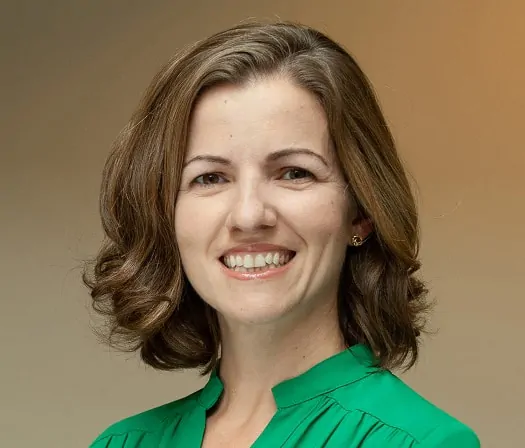Choosing to put an end to fertility treatment can be an exetremely difficult decision. Receiving fertility treatment can be emotionally taxing and some choose to stop the treatment due to emotional depletion. In this article, you will learn when to stop fertility treatment and how to cope with the decision.
Starting fertility treatments can feel overwhelming, but but so can stopping and it is very difficult to know when to stop fertility treatment. During my own infertility experience, I participated in a support group where our leader invited us to image our infertility as a raging river. We stand on one side, and on the other is our future selves, feeling happy and at peace with life after we have resolved our infertility. She told us she did not know exactly how we would get to the other side, but only that we all would, and that in ten years none of us would feel the way we felt now. My daughter is now ten years old, and everyone from our group is indeed on the other side of the river. Some of us crossed and became parents via the bridge of IVF, while others found their children through adoption and foster care. One woman elected to remain childfree. She and her partner focused on work, travel, and building their relationship as a couple while enjoying their nieces and nephews. None of us are the shaking messes we were when we met. Knowing when to stop treatment involves deciding what bridge you are and are not willing to cross, as well as reevaluating what life you can imagine on the other side.
People invest large amounts of money and emotions
In my twelve years working in reproductive medicine I have seen many couples enter the office hoping they will not have to do something invasive like IVF. A diagnosis of severe male factor changes this suddenly. The same people now fervently hope that enough sperm can be found to try IVF. In some ways this situation was easier before the development of assisted technologies. Couples facing a diagnosis of low or absent sperm counts were told to pursue adoption or use donor sperm. While ICSI has allowed for biological parenting for men in situations once considered impossible, it also leads couples to invest a large amount of money and emotions for treatment with uncertain outcomes. Rarely are couples told “there is nothing more we can do.” Instead, we offer increasingly technical options, which often take the couple farther from what they first imagined. Infertility hits so deeply at the core of who we are and what we dream for the future.

Most of us take for granted that we can become biological parents
Most of us take for granted that when are ready to parent, our bodies will cooperate. Although we talk clinically about reproduction as the merger of eggs and sperm, what couples picture is a child with their partner’s eyes, hair, or laugh. Our default image of parenting often involves a miniature version of our combined selves. Remember that a child may not resemble either parent in looks or temperament following spontaneous pregnancy (I do not like the term ‘natural pregnancy’ as it implies IVF children are somehow unnatural. I see using scientific resources to treat a medical condition as incredibly natural). Still, it is hard to accept that a biological child is not possible, or that further treatment cycles have a diminishing chance of success.

The Reason why people stop fertility treatment is emotional depletion
I counsel couples facing infertility to be aware of their physical, financial, and emotional reserves. Depleting your physical reserves is the least common reason for stopping treatment. In the moment it may seem as if you cannot do one more invasive test or another night of shots, but most push through that discomfort. Outsiders often assume financial reserves are the most common reason for stopping treatment, as assisted technologies and medications are so expensive. While monetary concerns are a barrier, the most common reason people stop treatment is actually depletion of emotional reserves. The idea of going through another round of emotional upheaval can seem too much to bear, even with full insurance coverage and a good prognosis. I have seen many couples who would likely conceive with another round of IVF decide the stress and anxiety of trying again is just too high. I tell couples to monitor and guard their emotional reserves as carefully as they do their financial resources.
And that stress assumes a couple has been able to attempt IVF. A diagnosis of severe male factor might mean that the couple are faced with the additional anxiety and uncertainty of a sperm retrieval surgery. Only when couples are told no sperm can be found in the testicles, or when multiple IVF cycles have failed from poor sperm quality do people begin to consider other paths across the river of infertility.
Consider what is important to you and what your options are
Take time to think what is most important to you. The lines of what we are willing to do to become a parent shift, sometimes gradually and sometimes quickly if told there is no other option. Often men and women adjust their goals and expectations at different paces. One partner may be open to stopping treatment or exploring alternative paths far before the other. Resolving infertility may involve deciding what you are willing to let go of. Can you be a parent without a genetic connection? Are you willing to relinquish the experience of pregnancy? Must you care for a child from infanthood or could you bring a foster child into your life to love and raise? Or perhaps you discover you feel most content as a family of two. There is always a different path to the other side of the river, only you can decide what feels like a bridge worth crossing. What matters is to cross together. Someday you will also look back at yourself pre-infertility and realize the bridge you choose made you the family you were meant to become.
You can read more about the life after infertility in this article.




